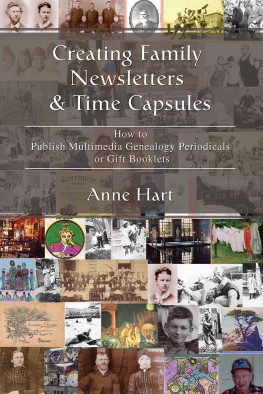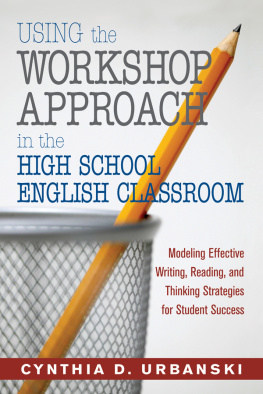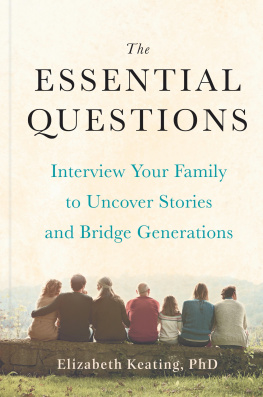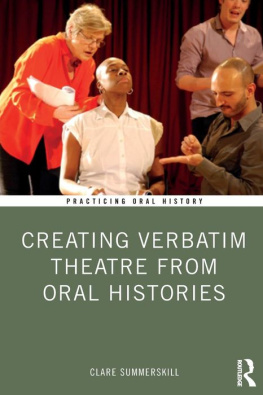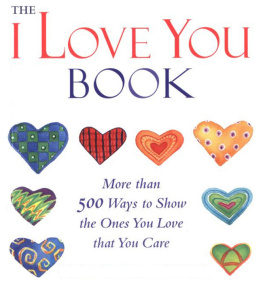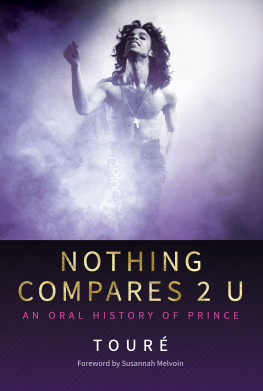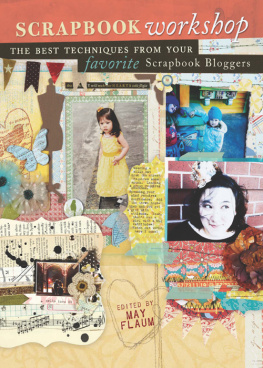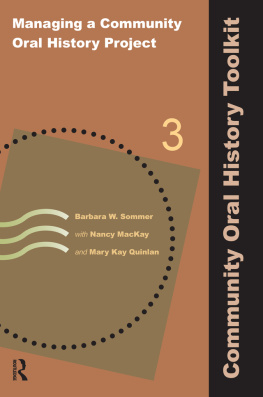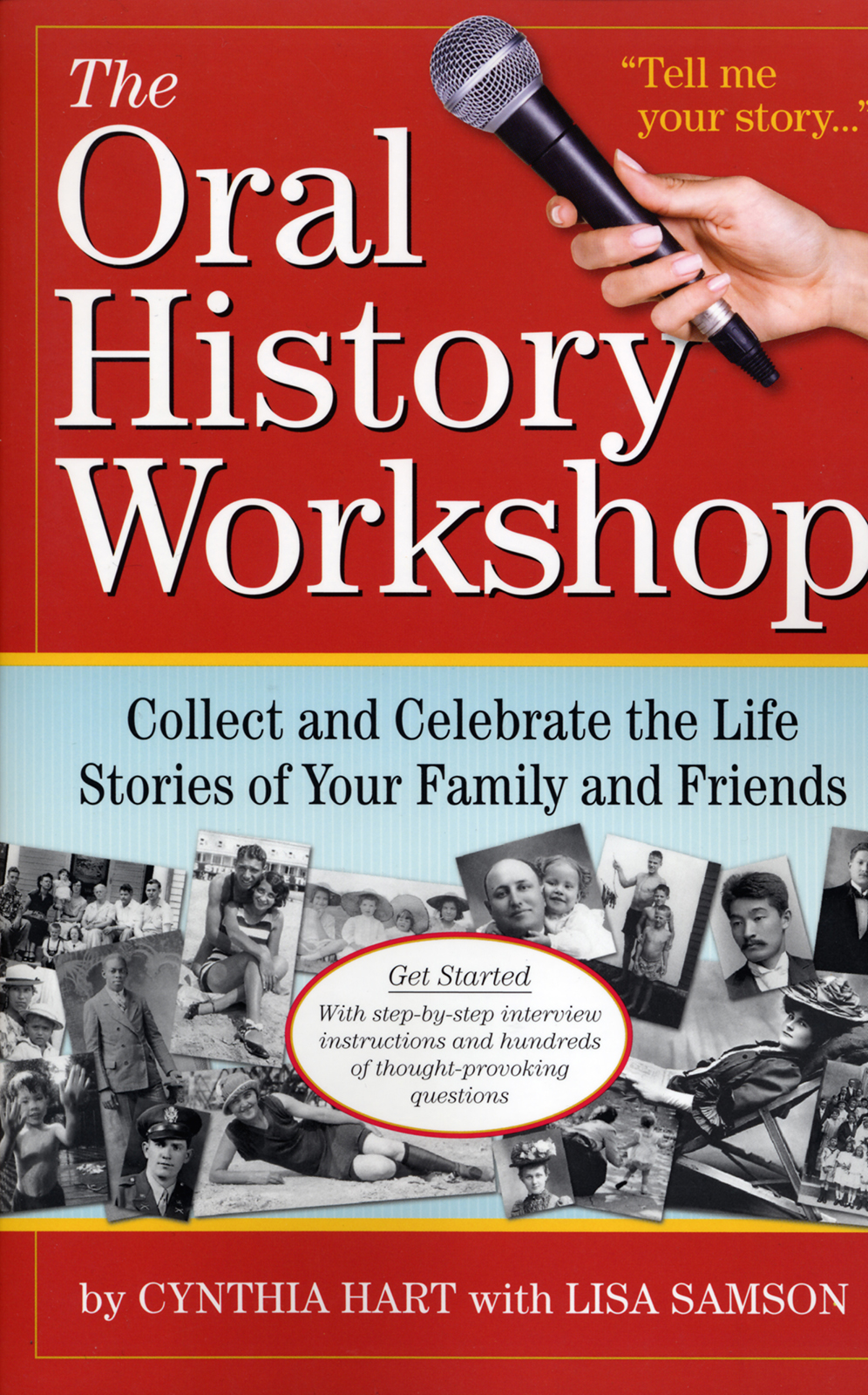
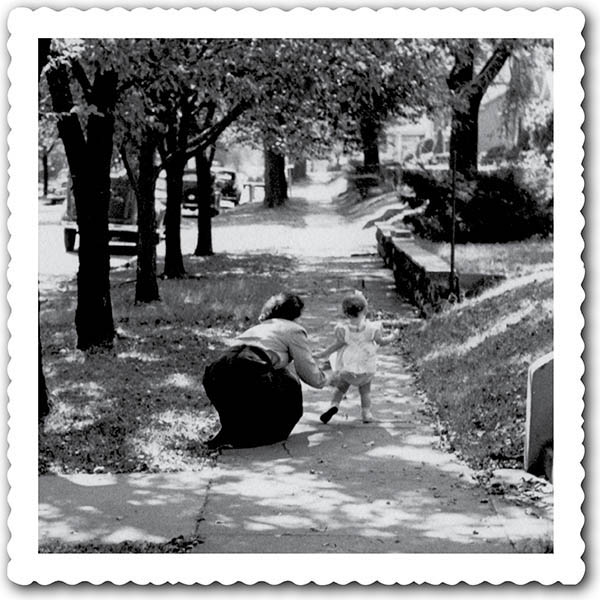
To be a person is to have a story to tell.
I sak D inesen
The
Oral
History
Workshop
Collect and Celebrate the Life Stories of Your Family and Friends
by Cynthia Hart
with Lisa Samson
workman publishing New York
For all those whose stories will be told
Contents
Introduction
O nce upon a time, a book like The Oral History Workshop wouldnt have been necessary. Once upon a time, when most people lived in small, tight-knit communities, with or within a stones throw of their families. When stories, lore, and family history were essential parts of everyday life. When people spun yarns around the dinner table. When neighbors watched out for and knew everything there was to know about one another.
Nowadays, people move around for work, for better climates, for real estate deals, for fresh opportunities. Odds are pretty good that you dont know much about where your neighbors come fromand maybe you dont know that much about where you come from either. In this modern mobile context, it makes sense that genealogy is such a popular pursuit. People are starved for information about their roots; they pay to have their DNA decoded and spend time worrying about their identities.
But there is a more direct way, a way to mine the rich sources of information all around usjust ask.
Everyone has a story to tell. And every individual is a piece of a greater puzzlea family, a community, the wider world. This book will enable you to explore those puzzle pieces, and perhaps to come a step closer to fitting them into place.
Of course, were talking about people here, not puzzles. About sitting down with a loved one and asking the questions youve always wanted to askand a great many you havent thought of before. About capturing stories youve heard time and time againor stumbling onto stories youve never been told. The listening process may bring you closer to those you care about, and will doubtless provide answers to questions youve had for years: My father sold insurance for a living, but he always hinted that hed wanted to be a doctor. He never explained why he abandoned his dream. Elizabeth loves to tell stories about the wild times she spent traveling with her great aunt, but Ive never known why she wasnt closer to her parents. Id love to hear our eighty-five-year-old neighbor talk about what life was like in the 1930s.
Genealogy and Your Interview
A passion for many, genealogy is the study of familial and ancestral history. Even if its not a particular interest of yours, youre probably familiar with the basic concept of a family tree. At its core, the quest for lineage answers the question all humans (especially four-year-olds) have been asking since time immemorial: Where did I come from?
For many budding genealogists, the Internet has provided a veritable trove of answers. A simple search of family names can open a portal that leads from link to link to linkwhere all kinds of information might be revealed, from records of citizenship, marriage, and employment to the names of the ports at which your ancestors disembarked. At the end, satisfied searchers may leap up from their computers in the throes of spirited Aha! momentsI found us on the Mayflower! Our name is in the history books! or simply, I wouldnt be here were it not for all of this. But the nature of the pursuit itself can be isolating; and the results, though gratifying and sometimes impressive, can seem abstract.
Personal history interviews go beyond the family tree, revealing what the ships passenger lists, census data, and marriage certificates cannot: how your great-aunt felt as she scrimped and saved to emigrate to America, what kept her going during the times of struggle, what shaped her decisions. And they enhance and complement that family tree as well, sometimes removing untold degrees of separation between the branches: A persons memories about his grandparents or even great-grandparents will put you in touch with events that span centuries. Now thats an Aha! moment.
What Is Oral History?
Oral history refers to the practice of soliciting and recording spoken storiesstories that sometimes amount to richly detailed and emotional accounts of individual lives.
Of course, technically, oral history has been around for a long, long time. Spoken word has always been a means by which people have passed along knowledgewithin families, within tribes, within religions, within neighborhoods. But both the term and the professional practice evolved in response to traditional, written history, a field which had tended toward a hierarchical view of things. Even if your aim is to grasp the big picture, you cant fully understand the actions of a Napoleon without also knowing what life was like for his soldiers; and those men probably didnt have biographers, nor were their stories told in the pages of newspapershence the need for a method that would help gather information about previously under-recorded groups.
Nowadays, the two approaches intermingle: Historians use oral histories to complement and contextualize what they glean from written documents like data-rich (but emotionally neutral) official records. Oral history gives voice to the data.
Oral history may or may not accurately describe what you do when you sit down to do your interview. Your interest may be casual or personal; but, like photography, oral history is a tool that can be used to create anything from casual snapshots to epic masterpieces.
Why We Wrote This Book
Cynthias Story: On January 5, 2007, at 8:31 in the morning, my telephone rang. I remember the exact time because the ringing abruptly yanked me into consciousness, and as I lunged for the handset I saw the numbers glowing red on my digital alarm clock. I croaked a groggy Hello? A warm but unfamiliar voice said, Hello, Cynthia, this is Brian Berg. Im sorry to call so early, but I wanted to let you know that my mother passed away last night. Brians mother, my dear, dear friend Jean Berg, had died suddenly of a heart attack while sitting at home in her favorite chair; her husband, Howard, had used CPR, called 911, and done everything he could to save her.
Two days later, on January 7, 2007, at 2:15 in the afternoon, the phone rang again. No one answered my Hello, and after a few moments I heard a hang-up click. I found out later that it was my son, Thomas, who couldnt bear to tell me that his father had just died. Harumi had been ill for several years, but none of us had known how sick he really was. After an unexpected seventeen-day hospital stay, he wassuddenlygone.
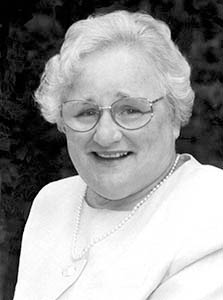
Jean Berg
I had had frequent and lengthy conversations with both Jean and Harumi, and if Id thought about it (which I didnt), I would have assumed we had lots more time to talk. Sometimes, I still find it hard to believe that they arent around and theres no next timeand its so, so sad. I knew them wellbut I wish I knew more. I especially regret not asking about Harumis childhood years, and how Jean had discovered her passions for antiques and dollhouses.
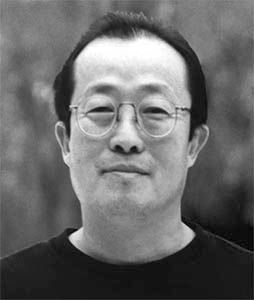
Harumi Ando
The only good thing about this sad chain of events is that because of the love and admiration I had for these two people, and my combined shock and sadness about their deaths, I decided to write this book.
Next page

